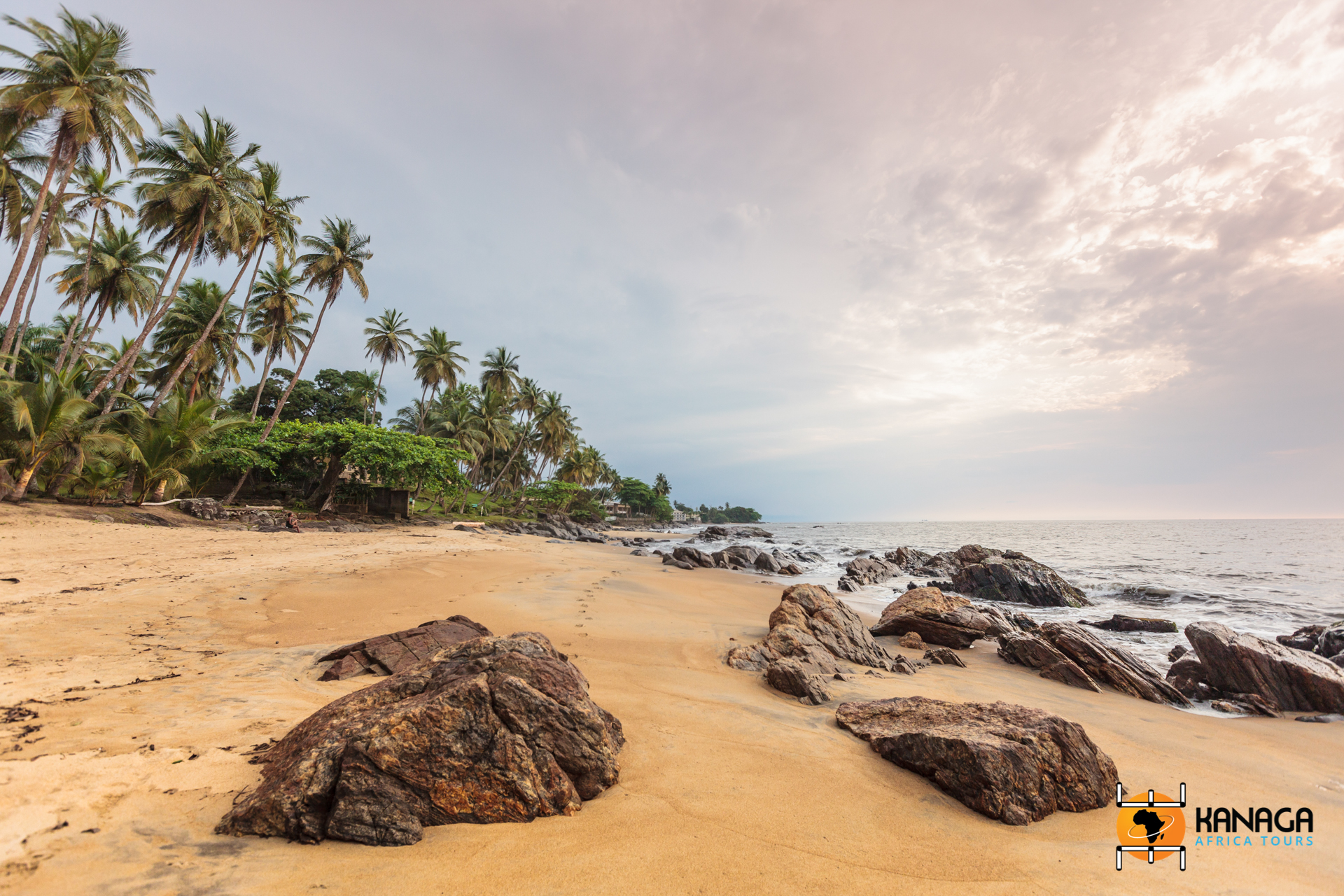While the central coast, around Mount Cameroon, is characterised by lunar expanses of dark volcanic sand, descending the coastline towards the south, there are paradisiacal locations of golden beaches, fringed with palm trees and natural monuments, between the port city of Kribi and the Campo Reserve.
This region is home to small fishing villages, tourist resorts, impressive waterfalls among anthropomorphic rocks, chimpanzee sanctuaries and intricate nature reserves inhabited by pygmy communities.
The fact that the original fishing villages around Kribi and its old German port have in just a few years become one of the most popular seaside resorts on the Cameroonian coast is thanks to heavenly beaches of fine sand, bordered by tropical vegetation and served by accommodation facilities that are well integrated into the surrounding landscape. This has not detracted from the wild stretch of oceanic coastline, which is still characterised by naturalistic spots frequented by sea turtles, freshwater estuaries that meet the sea waves, and the placid, traditional daily routine of the fishermen in Ebodjé and Eboundja, who are happy to be helped to haul their nets loaded with fish ashore in the evening.
These are the lands of the Mabi and Batanga peoples, or the Fang Muslims, while the Pygmies, the first to inhabit the region, have been pushed more and more into inland reserves, recalcitrant to the industrialisation and progress of a part of the coastline, but also victims of a “segregationist” climate.
Every year the Batanga celebrate colourful and lively festivals, with evocative dances and songs, reminiscent of ancestral ceremonies and rituals, to mark their return after the forced flight to which they were subjected in 1915 by German troops.
In the south, towards Campo, there are many naturalistic excursions, from navigations on the Lobé River among mangrove forests and pygmy camps, to the gigantic waterfalls where the river forcefully plunges into the ocean, from walks along the coast of Grand Batanga, dominated by the mystical Roche du Loup, with its bizarre shape reminiscent of a wolf, to the Campo National Park, which is home to the last families of gorillas, passing by paradisiacal beaches, some of which are equipped for tourism and some of which are completely deserted, except for a few pirogues that navigate the waters.
In short, the Kribi coastline has all the cultural and natural ingredients to make it an unmissable destination.
Relax on the shoreline and a jubilation of fresh fish on the table will do the rest.






